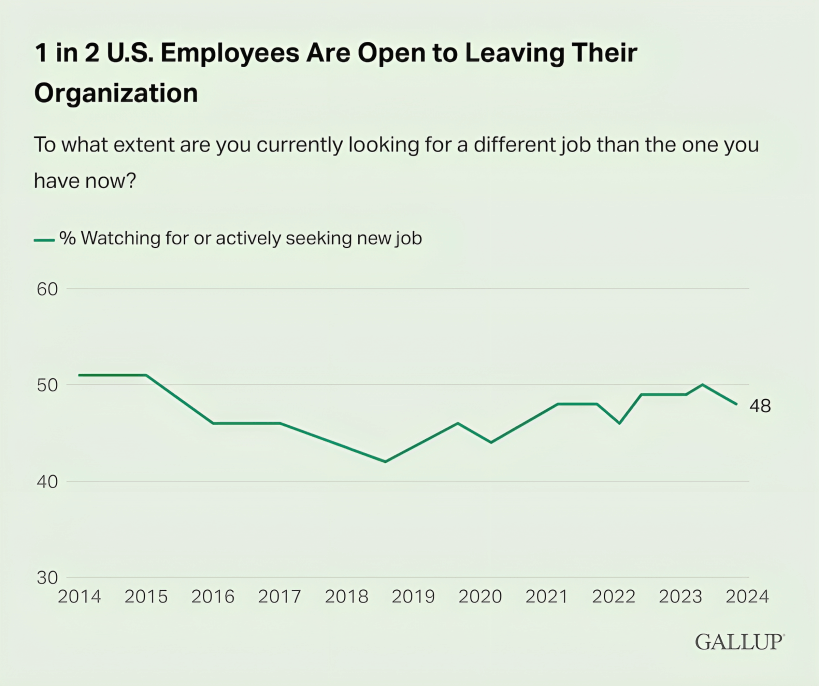The Impact of Job Hopping: Are There Career Consequences?
In the fast-paced world of work, job hopping has become a common trend, especially among younger employees looking for quick career progress and bigger salary raises. But, what impact does this trend have on one’s career? Let’s dive into the good and the bad sides of job hopping.
Why Job Hop?
Quick Financial Gains: People job hop for many reasons, one of the most appealing being bigger salary raises. Moving to a new company often means a better title and more money, sometimes by as much as 20-30%.
More Opportunities: Higher positions and jobs can be hard to get in one company. Job hopping lets people find new challenges and learn other stuff more often than staying would give them.
Avoiding Stagnation: When many feel their growth stops after some time at one company, job hopping can be a smart choice to keep moving up, get away from boredom, and stay interested with new stuff.
The Downsides
Seen as Unstable: Some companies, especially the old-school ones, see job hopping as a bad sign, thinking it shows a lack of loyalty and steadiness. This can make it hard for regular job hoppers to get jobs at these places.
Missing Out on Long-Term Stuff: Moving around a lot can mean losing out on long-term rewards like retirement matching, shares, and building up paid time off. These lost rewards can sometimes balance out the extra money from higher salaries.
Harder to Climb Higher: While job hopping can bring quick money increases and different roles, it can slow down getting to more senior positions. Being seen as a leader or a specialist in an area needs time and staying places, which can be hurt by changing jobs a lot.
Depends on the Job Field: It’s important to know that the effects of job hopping can change depending on the job field. Forward-thinking areas might see job hopping as showing ambition and flexibility, while more traditional areas could view it negatively.
Smart Choices for Job Hoppers
If you’re thinking of job hopping, here are some tips:
► Being in a job for at least a year and a half can reduce the bad label of being a ‘job hopper,’ and it shows you’ve really contributed.
► Don’t just focus on money when changing jobs, but also talk about other stuff like vacation time or different perks with each move.
► Not all job hoppers are the same. Moving for a big pay increase or a job promising a lot of growth could be good moves. However, hopping just for something new might limit how far you can go later.
Millennials and Job Hopping
According to Gallup, the youngest working generation is not the only one interested in job hopping as millennials appear to change jobs more than any generation before them. With 21% of millennials saying they switched jobs in the past year and a surprising 60% being open to new job opportunities, it’s clear this group views jobs differently as well. The report also shows that only 29% of millennials truly feel a sense of belonging at their job and company.

Source: Employee Retention & Attraction – Gallup
Conclusion
In the end, job hopping can bring some good things like more money and chances to grow but also some bad like missing out on long-term stuff and maybe slowing down your career path. The trick is to make smart moves that match your long-term career goals rather than just for quick wins. Remember, while hopping for more pay can seem careless sometimes, thinking about the long impact on your career path and growth is just as key.
And hey, sometimes staying and talking things out inside your current job can boost your career just as well—something to keep in mind next time a new job catches your eye.
- The Impact of Job Hopping: Are There Career Consequences? - April 25, 2024
- Should You Follow up on a Job Application - April 22, 2024
- Job Application: Best Practices for Listing Reasons for Leaving a Job - April 18, 2024

